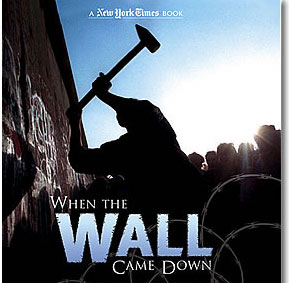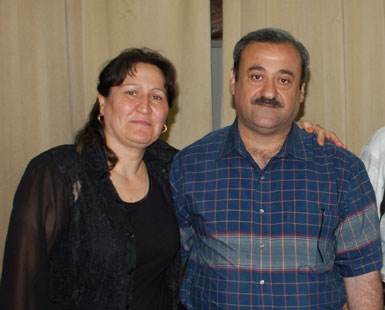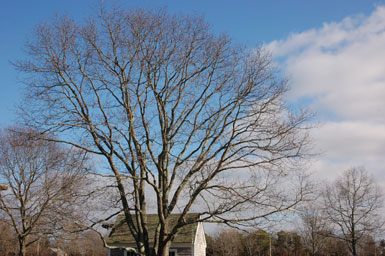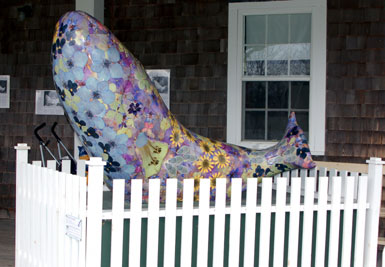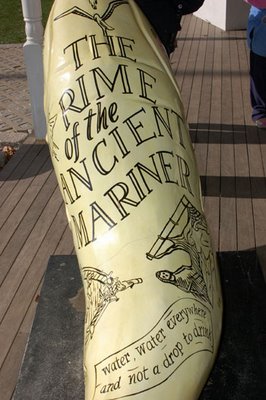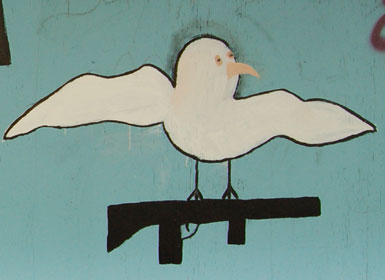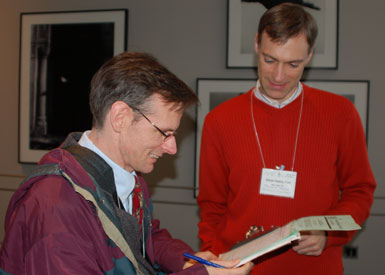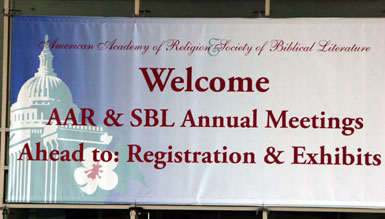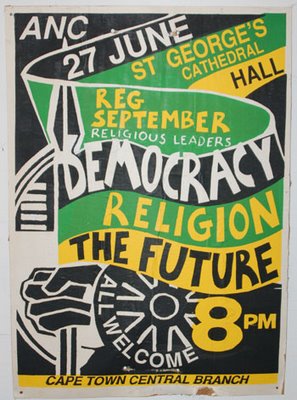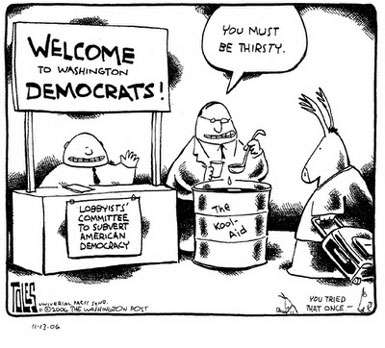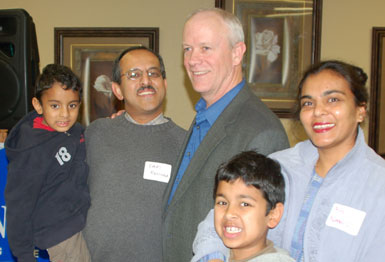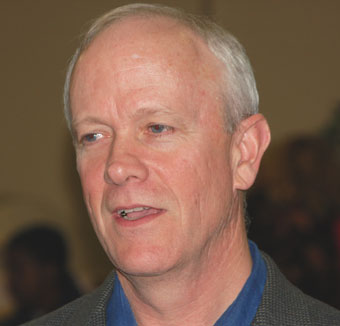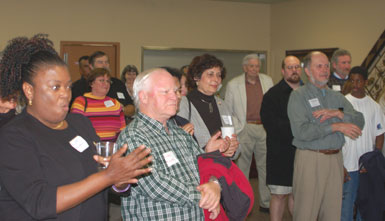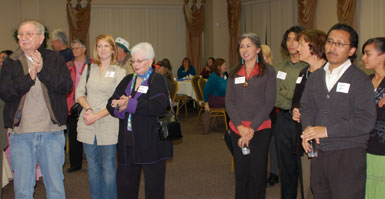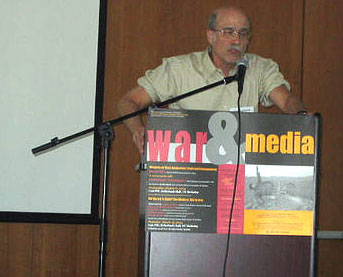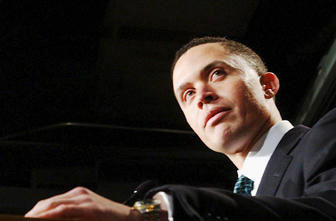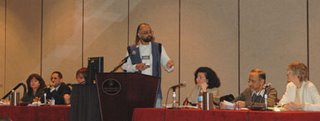
On Sunday, November 19, the Islamic Studies section of the American Academy of Religion (AAR) hosted a panel of six scholars, each speaking briefly on the troubled matter of the Danish cartoons depicting (or defaming) the Prophet that inspired such outrage in some Muslim communities last year.
Although I have written about responses by
San Francisco Bay Area Muslims to this brouhaha, I didn't go into the panel thinking that I knew quite what to make of the competing claims of free speech versus the injured offense felt by a culturally oppressed minority. I didn't come away much more sure of my own views, but I did learn some substantive things which I will share here.
Liyakat Takim of Denver University spoke on the nuances of the Islamic prohibition of representational images. In Sunni tradition, the prohibition is absolute; representational art is considered to attempt to usurp God's prerogative as the Creator. However, in Shia tradition, there is no absolute prohibition of respectful images of the Prophet and Imams. Intense identification with these persons in popular piety, especially through "passion play" reenactments of their stories, has forced scholars and clerics to make some allowance for depictions of these figures.
Marcia Hermanson from Loyola University quickly pointed out the many differences between Western responses to Muslim outrage over Salmon Rushdie's novel,
The Satanic Verses, and the Danish cartoons. Notably, the Rushdie controversy introduced the West to notions of Muslim law and fatwa, while the cartoon eruption was usually constructed as a matter of Islamic iconoclasm. In the
Satanic Verses situation, it was the Left in the West which stood up for an author's option of free expression and creative license; on the cartoon issue, it was the Right that screamed "freedom for [offensive] speech" and "Islamo-fascism."
Laury Silver from Skidmore College discovered to her astonishment that, for many of her faculty colleagues and students, her felt offense at the images of the Prophet rendered her "an alien life form." Although a fan of such edgy, U.S. cultural products as South Park, the experience taught her to claim a "right to be offended" and to demand some sensitivity from persons claiming a collegial relationship. "It is not an attack on the right of free speech to expect sensitivity to possible offense."
Munir Jiwa of the University of Toronto attempted the most sweeping analysis of the cartoon crisis. For him the cartoons and the reaction pointed out the limitations of the secular, liberal state. The polity evolved in the West doesn't recognize hurt or disrespect as real injuries, yet for minorities surrounded by a disdainful dominant culture, they can be. The Danish context of the cartoons was a racist situation; the cartoons were intended to hurt. Our standards for civil society don't include remedies for this kind of harm done by a powerful majority to a minority. Christian Europe particularly has a hard time understanding the degree to which the Prophet is experienced by Muslims as an intimate relation, a member of their families.
Kristen Sands from Sarah Lawrence learned from these events "when not to have a conversation. " She found, as a Muslim and a teacher of Islamic Studies, that people would approach her about the cartoons, not because they wanted to have an exchange of views, but because they wanted to dump something on her that they felt/thought. People would "hurl their emotions at each other." Her general experience of teaching Islamic Studies is one of disabusing her students of powerful stereotypes of "veiled women and menacing men."
Jocelyne Cesari, currently teaching at Harvard, sought to explain the European context of the cartoon eruption. She explained that the culture and history of European society is formed in a concept of Islam as the religious enemy. People in the U.S. don't entirely share this underlying perspective despite our Christian history. Rejection of and contempt for Islam is part of everyday "Voltarian secularism" in the European context.
Moreover, in Europe, only Muslims are actively religious; most Europeans are completely secular, simply oblivious to religion. So religious seriousness itself is suspect, odd. Further, Islam is conflated with an exploited, immigrant underclass. European hostility to Islam didn't start with 9/11, but since 9/11 additional license to insult Islam has made insults to Islam commonplace, normal. Further, Europeans have a different legal tradition relating to speech, labeling some verbal and written expression unspeakable, including Holocaust denial and sometimes blasphemy in reference to Jesus Christ.
Surveys at the time of the cartoons indicated that ordinary Europeans Muslims were offended but considered the affair just an ordinary part of an abuse of their religion that they expect in daily life. Cesari maintained that their clerical leadership could not/did not express their outrage in terms understandable to secular society. She believes that European Muslims need more leadership that can negotiate dialogue with secular societies. Clerics tried to limit debate about the cartoons not only among outsiders, but also within European Muslim communities.
The audience of some 100 or so religious academics had a chance to weigh in briefly. There followed some hurling of emotions, both secular liberal and pained Muslim. "Why did they have to do this?" came from both sides.
A Kenyon professor told of showing the offensive cartoons to a class on imperialism and globalization. Students immediately described the cartoons as anti-immigrant racism. However, nothing in his description of the student reaction conveyed that they could imagine the cartoons might have caused emotional injury, beyond causing a political reaction to depiction of Muslim powerlessness.
My reactions to all this: emotional injury from speech is simply not a category the U.S. understands. Yes, we have effectively removed overt racist language -- think of the "N word" -- from polite and political discourse. But there are no legal penalties for being a verbal racist asshole, although there may be social and political ones. The ways we think about these issues don't treat emotional injury as real harm. Majorities here enjoy license to inflict emotional injury. Although custom can inhibit expression, law does not. I can live with that -- even celebrate that -- but I'm not a member of the injured minority in this instance. When I have been a target, as a lesbian, I've known that gay bashing creates political and social advantage for my people, since the temperate center of the majority abhors conflict and disdains bullying. That reaction is political however. The Muslim reaction to the cartoons springs from core emotions and allegiances, not such a calculus.


